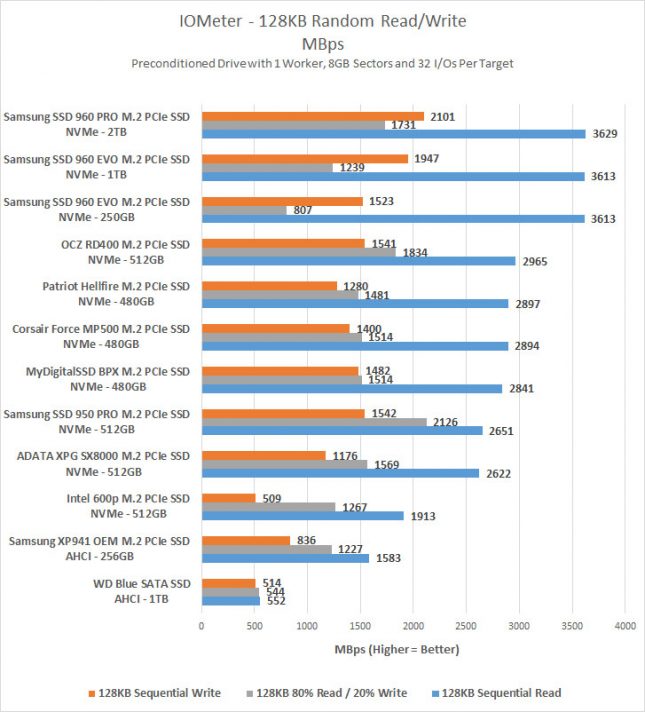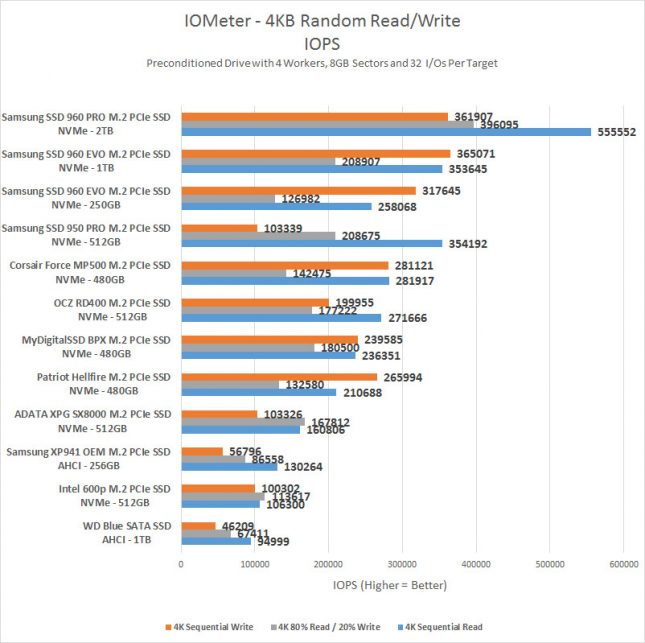ADATA XPG SX8000 PCIe NVMe 512GB SSD Review
IOMeter Sequential and 4K Random Performance
IOMeter Sequential Performance
Legit Reviews is once again adding IOMeter v1.1.0 testing to our Solid-State Drive reviews as we feel that the canned benchmarks no longer show enough of the performance picture nor do they expose many of the heat issues that we are starting to encounter on M.2 PCIe SSDs and sustained write issues on TLC NAND based drives. We start out testing each drive with IOMeter, but first we prepare the drive. This is done by using Parted Magic to complete a full Secure Erase each and every drive. Next we use IOMeter to prefill the drive by performing the industry standard 128KB, aligned, sequential write workload across the entire drive for a period of 30 minutes. Once the drive is conditioned we run our saved sequential test profile that runs our 128KB test for one minute with a five second ramp time before each test. The queue depth is set to 32 as we feel with NVMe drives starting to come out that we need to increase our IO depth.
The 128KB Sequential Read/Write test is done primarily to make sure the drives we are testing meet or surpass the manufacturer specifications for sequential Read/Write performance. The ADATA XPG SX8000 PCIe SSD 512GB drive is rated at 2,500 MB/s read and 1,100 MB/s write and we were able to get 2622 MB/s read and 1176 MB/s write when performing each test for a period of 1 minute.
IOMeter 4K Random Performance
When it comes to 4K Random Read/Write IOPS, the ADATA XPG SX8000 PCIe 512GB SSD is rated at 140,000 IOPS for Random Write and 160,000 IOPS for Random Read. We got 160,806 IOPS for the 4K Random Reads, only got 103,326 IOPS for the Random Write IOPS. The Intel 600p and the ADATA XGP SX8000 both use the SM2260 controller and it is strange that the 80/20 workload performed the best on both of those drives!
Let’s wrap this review up


